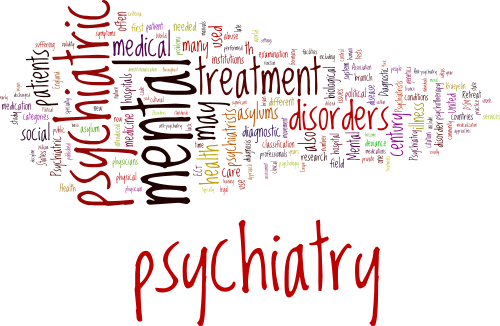
Launched in 2002, Annals of General Psychiatry is one of BioMed Central’s oldest journals. The journal considers manuscripts on all aspects of psychiatry, including neuroscience and psychological medicine. As the journal has grown, it has evolved to the point where some changes are required to maintain further growth, while guaranteeing a first-class service to authors. We are delighted, therefore, to introduce a new Editorial Board structure for Annals of General Psychiatry, which will focus on the appointment of Section Editors to the journal.
Among the new Section Editors are Dr Heinz Grunze and Dr Athanasios Douzenis, who share a more detailed look at how their respective fields have changed since the launch of Annals of General Psychiatry, along with how their fields are represented in the journal.
Bipolar disorder – what has changed and where do we go from here?
Heinz Grunze
Annals of General Psychiatry values the special importance of research in bipolar disorder by assigning individual section editors to bipolar and unipolar affective disorders. Over recent decades, the awareness of bipolar disorder by physicians, as well as public acceptance, has significantly improved. However, stigma continues to persist and needs to be tackled.
Today, a greater choice of drugs allows for a more personalized treatment of bipolar disorder; but our knowledge about the genetic and epigenetic predisposition, and how genetic patterns may predict treatment response is still sparse. Furthermore, a bipolar diagnosis is no longer considered an exclusion criterion for psychotherapy but as a challenge in need of evidence-based therapeutic interventions.
However, as we deal with a complex multifactorial disorder, we should not expect the discovery of a panacea that will cure bipolar disorder but welcome small, nevertheless important steps towards a better understanding of the patho-physiology and -psychology of bipolar disorder in order to design treatments tailored to the individual patient.
Forensic psychiatry and ethics
Athanasios Douzenis
Forensic psychiatry as a psychiatric subspecialty is facing increasing challenges in recent years. Explaining violent and destructive behavior has always been a challenge but, in the recent years, there is a growing realization that forensic psychiatry is a prime area for developing and applying the biopsychosocial model of mental illness.
Annals of General Psychiatry wishes to be in the forefront of research applying the biopsychosocial model in the field. Through this, we hope to improve our assessments of dangerousness, but also improve rehabilitation of forensic offenders and address the association of serious mental illness with crime.
Ethics in medicine is an evolving field, and according to some is the only field within ethics as a branch of philosophy that faces new challenges. Psychiatry, since it deals with the whole person, is a branch of medicine where applied ethics are especially relevant in everyday practice. Annals of General Psychiatry would welcome contributions that deal with ethical dilemmas as part of the clinical practice (consent, treatment in the community, the distinction between mental and physical illness regarding the capacity to deny treatment etc).
New editorial structure
The new Section Editors for Annals of General Psychiatry are as follows:
Basic neuroscience
Dr Maurizio Popoli, University of Milan, Italy
Bipolar disorder
Prof Heinz Grunze, University of Newcastle, UK
Dementia and Psychogeriatrics
Prof Michael Davidson, Sheba Medical Center, Israel
Forensic psychiatry and ethics
Dr Athanasios Douzenis, National and Kapodistrian University of Athens Medical School, Greece
Meta-analyses
Dr Aysegul Yildiz, Dokuz Eylül University, Turkey
OCD
Dr Stefano Pallanti, University of Florence, Italy
Psychiatric Genetics
Prof Thomas Schulze, University of Göttingen, Germany
Psychopharmacology
Prof Siegfried Kasper, University of Vienna, Austria
Prof Michael Thase, University of Pennsylvania, USA
Psychotherapy
Prof Stephan Döring, Medical University of Vienna, Austria
Suicidality and self-destructive behaviour
Dr Xenia Gonda, Semmelweis University, Hungary
Treatment guidelines/Clinical Psychopathology
Prof Roumen Milev, Queen’s University, Canada
Unipolar depression
Dr Laura Mandelli, University of Bologna, Italy
We are extremely grateful for their service, and we look forward to working with them in the future. With their help, we hope to realize our dream of making Annals of General Psychiatry the open access journal of choice for psychiatrists around the world.
You can read the full list of the Editorial Board members on our website, as well as the most recent and cutting-edge research in the field.
Comments